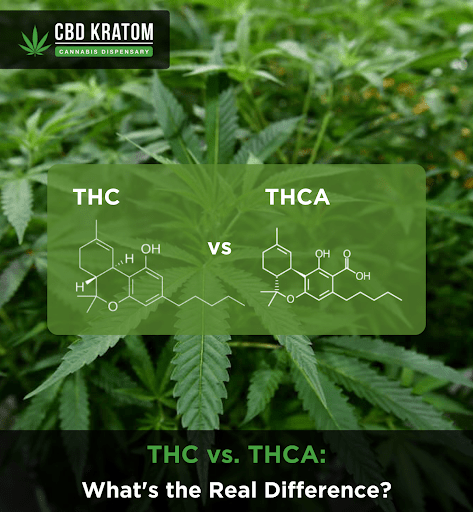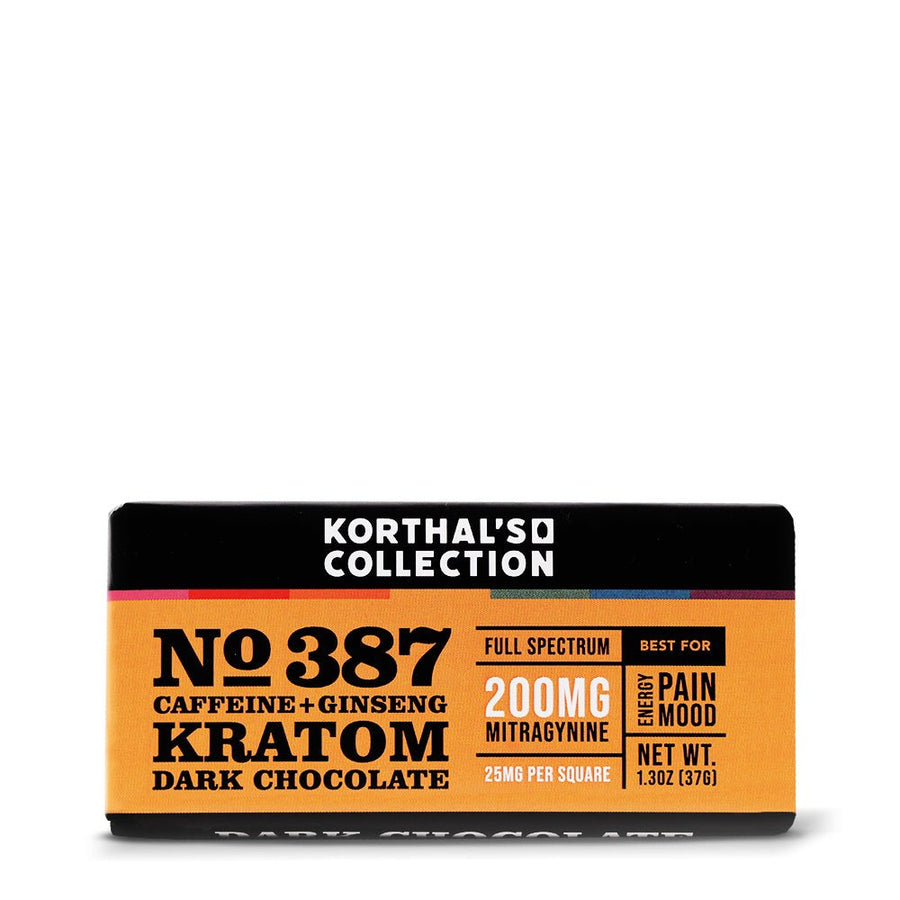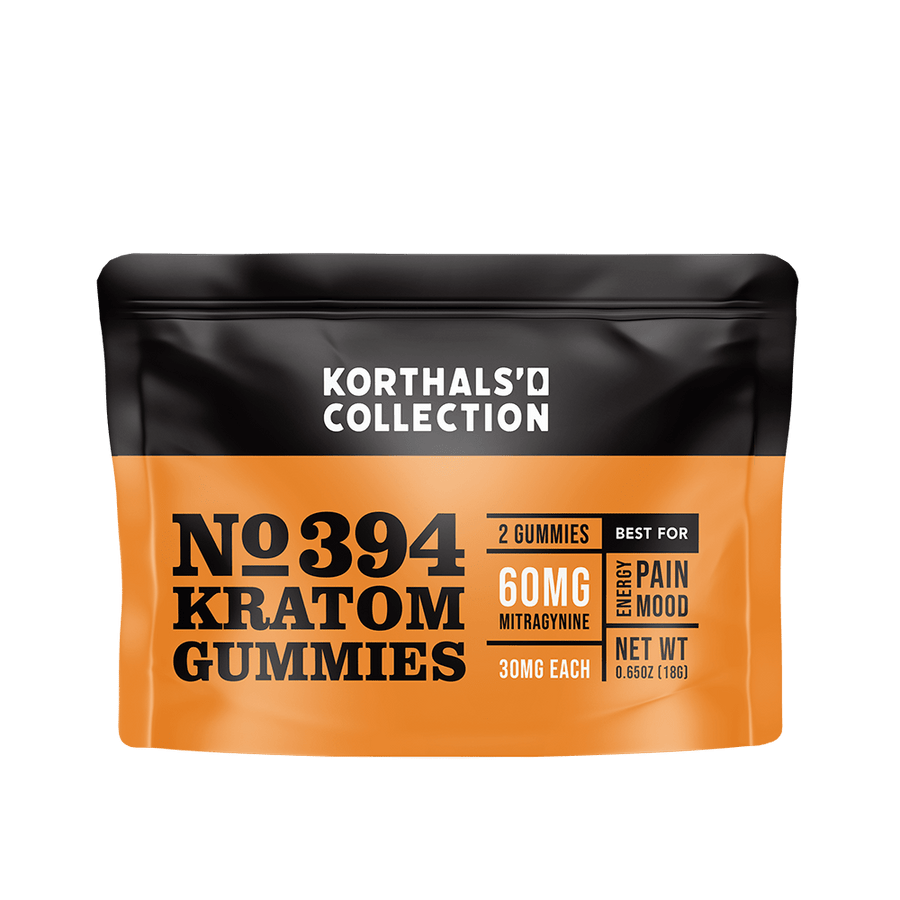Cannabis is a plant known for its diverse compounds, two of which often spark curiosity: THC (tetrahydrocannabinol) and THCA (tetrahydrocannabinolic acid). While they may sound more familiar, these compounds have distinct properties, effects, and uses.
Understanding the difference between THC and THCA is crucial for anyone interested in cannabis. THC is widely recognized as the compound that may be responsible for the psychoactive effects or "high" commonly associated with cannabis. On the other hand, THCA is the non-psychoactive precursor to THC, which is found in raw cannabis. Through heat activation in a process called decarboxylation, THCA converts to THC, which may unlock its psychoactive properties.
This article explores THC vs. THCA, comparing its effects, potency, and applications. Whether you are wondering about THCA vs. THC which is stronger, or how their percentages differ, this guide will provide the clarity you need to make informed decisions about cannabis products.
What is THCA?
Plants containing raw cannabis contain a large amount of THCA, which is the precursor to THC. This compound is non-intoxicating and undergoes a chemical transformation, known as decarboxylation when exposed to heat. Without this process, THCA remains inert and does not produce the "high" typically associated with cannabis ingestion.
Potential Benefits of THCA -
Research suggests that THCA may offer potential well-being advantages, including -
- Anti-inflammatory properties that may alleviate discomfort associated with conditions like arthritis.
- Neuroprotective effects that could benefit individuals with neurodegenerative diseases.
- Antiemetic properties that may help manage nausea and vomiting.
THCA is widely available in products such as raw cannabis flowers, tinctures, and edibles, catering to those who seek non-psychotropic options.
What is THC?
THC is perhaps the most well-known cannabinoid, famous for its psychotropic effects. THC is formed when THCA undergoes decarboxylation, typically through heating methods like smoking, vaping, or cooking. This transformation alters the compound's molecular structure, activating its intoxicating properties.
Effects of THC -
THC may interact with the endocannabinoid system (ECS) in the body, producing effects which may include -
- Euphoria or a "high"
- Altered perception of time and space
- Enhanced sensory experiences
Key Differences Between THC and THCA
The difference between THCA and THC lies in their chemical structure, effects, and how they are taken -
-
Psychoactivity -
-
THCA - Non-intoxicating, even in high concentrations.
-
THC - Produces psychotropic effects upon decarboxylation.
-
Ingestion -
-
THCA - Best taken in raw forms, such as juiced cannabis or tinctures.
-
THC - Activated through heating, making it suitable for smoking, vaping, or cooking.
-
Legal Status -
-
THCA-rich products like raw cannabis are legal in many jurisdictions.
-
THC-rich products are often subject to stricter regulations due to their intoxicating nature.
-
THCA vs. THC Potency - While THCA is considered potent in its raw form for its potential wellness properties, THC is stronger when it comes to intoxicating effects.
THCA vs. THC: Which is Stronger?
When comparing THCA vs. THC, strength depends on the context -
- In terms of intoxication, THC is undoubtedly stronger due to its ability to produce a high.
- For potential therapeutic benefits, THCA is more favorable, especially for individuals seeking non-intoxicating options.
The THCA vs. THC percentage can also play a role in determining strength. For example -
- Raw cannabis may contain up to 20-30% THCA.
- After decarboxylation, the THC content may vary depending on the strain and processing method.
The Process of Decarboxylation: Transforming THCA into THC
THCA is converted into THC via the decarboxylation process. It involves exposing the raw cannabis to heat, which removes the carboxyl group from the THCA molecule, activating its psychoactive properties.
Methods of decarboxylation include -
- Smoking or vaping cannabis
- Cooking cannabis into edibles
- Heating cannabis in an oven to prepare it for use in tinctures or oils
This process is essential for unlocking the full potential of THC's effects.
THCA Potency vs. THC
While THC is recognized for its psychoactive potency, THCA potency lies in its potential well-being properties. Products rich in THCA include -
- THCA diamonds - Highly concentrated and pure THCA crystals.
- THCA tinctures - A liquid form suitable for sublingual consumption.
- THCA pre-rolls - Raw cannabis that retains its THCA content.
The potency of THC, on the other hand, is evident in its ability to produce intense euphoria, making it a popular choice for customers.
Legal Considerations: THCA vs. THC
The legal status of THCA vs. THC varies widely depending on jurisdiction -
- THCA-rich raw cannabis is often legal in regions where cannabis is permitted for medical use.
- THC-rich products are typically more regulated due to their intoxicating effects.
It's essential to research local cannabis laws before purchasing or using our CBD products.
Final Thoughts on THC vs. THCA
The debate over THC vs. THCA highlights the unique roles these cannabinoids play in the cannabis world. While THCA offers potential therapeutic benefits without intoxication, THC is celebrated for its recreational and medicinal applications.
Understanding the difference between THC and THCA can help customers make informed choices based on their needs and preferences. When comparing THCA potency vs. THC, the choice ultimately depends on whether you are seeking non-intoxicating benefits or the psychoactive "high."
Whether you are exploring cannabis for wellness or recreation, knowing the THCA vs. THC percentage in your products is key to achieving the desired results. Always consult reputable sources and professionals to ensure a safe and enjoyable cannabis experience.
Frequently Asked Questions
1) What is the main difference between THC and THCA?
THCA (Tetrahydrocannabinolic Acid) is the precursor to THC (Tetrahydrocannabinol) and is non-psychoactive in its raw form. When heated through a process called decarboxylation, THCA converts to THC, which produces psychoactive effects.
2) THCA vs THC: Which is stronger?
THC is generally considered stronger in terms of psychoactive effects, as THCA does not produce a "high." However, THCA is often valued for its potential non-psychoactive benefits, which may include anti-inflammatory and neuroprotective properties.
3) Does the percentage of THCA affect THC levels?
Yes, the THCA percentage in raw cannabis correlates with the potential THC levels after decarboxylation. For example, cannabis with high THCA content will convert to higher THC concentrations when heated.
4) What is the legal status of THC vs. THCA?
The legal status of THC and THCA varies by jurisdiction. In many areas, raw cannabis containing THCA is more widely permitted, while products high in THC are subject to stricter regulations due to their psychoactive effects.
5) How does THCA potency compare to THC?
THCA is not psychoactive and is often used for its potential therapeutic benefits. THC, on the other hand, is psychoactive and has a different mechanism of action, making it potent in terms of mind-altering effects.






















































